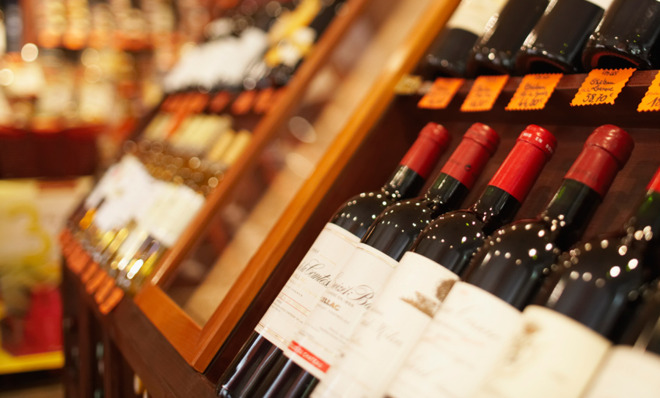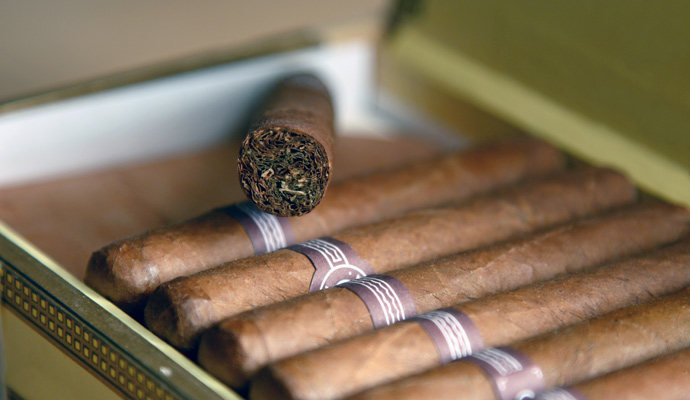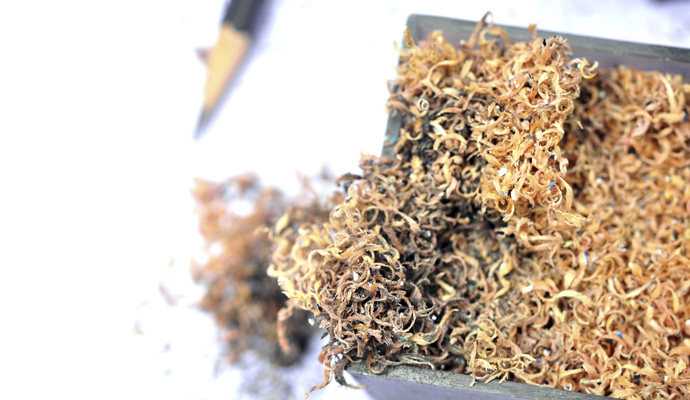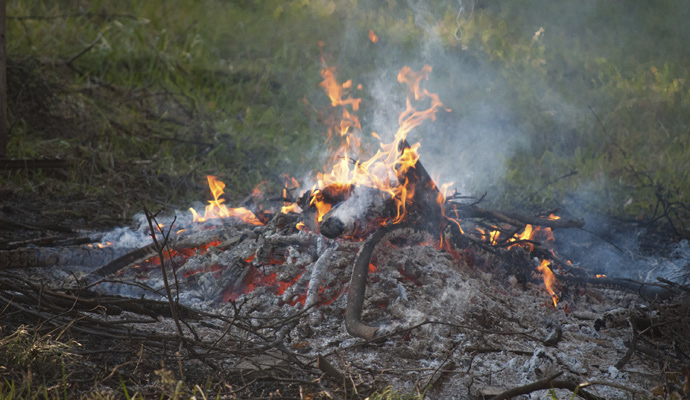17 disgusting descriptions for delicious wines
You'd think a Sauvignon Blanc characterized as smelling like cat pee would be awful. You'd be wrong.


A free daily email with the biggest news stories of the day – and the best features from TheWeek.com
You are now subscribed
Your newsletter sign-up was successful
Wine tasting is famous for some rather odd terminology. Chewy? Jammy? Racy? Gooseberries? Green peppers? Lychee? It's just a glass of fermented grape juice, right?
Then again, how else could oenophiles describe their beverage of choice? Imagine how you would describe the taste of a banana if you couldn't say, "Tastes like banana." You have to come up with comparisons. So, if someone tells you that your glass of Bordeaux has flavors of chocolate and blackberries, you don't expect it to taste just like dessert, but you can sip it and say, "I see what you mean."
But can we agree, at least, that delicious things should be described in terms of other delicious things?
The Week
Escape your echo chamber. Get the facts behind the news, plus analysis from multiple perspectives.

Sign up for The Week's Free Newsletters
From our morning news briefing to a weekly Good News Newsletter, get the best of The Week delivered directly to your inbox.
From our morning news briefing to a weekly Good News Newsletter, get the best of The Week delivered directly to your inbox.
No, apparently, we can't. Here's a brief glossary of gross things used to describe good wines. Use these to impress your friends. If you're really lucky, your friends won't want to drink the wine after you describe it, and you'll just have to have it all yourself.
Barnyard
Even if you've never been in a barnyard, you know what's there: hay and animal poo. This word is used to describe a rustic smell that some Chardonnays and Pinot Noirs can have, and there are people who like it. If that seems odd, remember that there are many soft ripe cheeses that smell like the north end of a southbound Angus bull, and yet many people love them.
Botrytis
A free daily email with the biggest news stories of the day – and the best features from TheWeek.com
You may not know what botrytis is, but it sure doesn't sound nice, does it? You'll like it even less when I tell you it's a kind of mold that grows on berries. But when it's on grapes, it can cause them to dry out, concentrating their flavors. Wine made from botrytis-affected grapes is sweet and rich and has a sort of dusty honey smell. And it's usually rather expensive.
Cat pee
This is an alarmingly common term used to describe Sauvignon Blanc wines. The first question is, "How many of these people have tasted cat urine?!" I hope not many, but I guess they claim to know what it smells like. They're really referring to a certain funky tanginess, reminiscent of the smell of guava or earwax. Apparently this is due to a chemical compound called p-mentha-8-thiol-3-one. Which sounds even worse than cat pee. But New Zealand Sauvignon Blanc is crazy popular.
Cigar box
When you smell Cabernet Sauvignon wines, you can often smell something like tobacco. In Bordeaux, they blend Cabernet Sauvignon with Merlot and Cabernet Franc and maybe a bit of one or two others and age it all in oak, resulting in a hint of a smell like a cigar box. Would you drink wine out of a cigar box? How about if it were filled with chocolate and dark berries? How about adding a bit of leather and wet gravel? No? Are you sure? Because I've just described some wines that go for a few hundred dollars a bottle. If you don't want any, I'll have yours.

Eucalyptus
Many people like eucalyptus… in their cough drops. In their wine? Well, look, it's not like you have a cough drop in your glass. It's more like someone walked past the door of the room a minute ago while sucking on a cough drop, and you think maybe you can still smell it. That's how it goes with most of these things people smell in wine.
Flinty
I'm tempted to say this is associated with the lighter kinds of wine. Actually, that can be true — usually this term describes a characteristic of a dry white wine such as a Chablis — but you can't put a flinty wine up against one with a cigar box aroma and expect to make it smoky as a result. What, exactly, is a flinty wine like? Not at all sweet, and maybe with a slight bitterness and a smell mildly reminiscent of rocks in the rain.
Forest floor
Hey, if you liked barnyard, you'll love forest floor. If you go into a forest and sniff the ground, you can smell plants and leaves fallen on the ground and decomposing, and especially lots of mushrooms and dirt. Now just dial that down and make it one small part of an overall flavor profile and you could be drinking a very expensive first-growth Bordeaux. And, we hope, enjoying it.
Grassy
You know what freshly mown grass smells like, right? Among the chemicals that make it smell like that are some aldehydes called hexenal, trans-2-hexenal, and cis-3-hexenal. Guess what: Those same things can be found in Sauvignon Blanc. But your lawn doesn't have alcohol in it. Cheers!

Iodine
You may not even know what iodine smells like, and I'm sure you don't know what it tastes like. But many wine writers seem fairly sure they discern it in some of the darker red wines. I wonder how many of them actually only know what iodine smells like from being told that the thing they can't identify in their Malbec is it.
Leather
Leather is nice. Leather is sexy. Leather is impressive. Leather is expensive. Leather is not drinkable. But many of the most revered red wines in the world have leather in their aroma and flavor profiles. This is because they have tannins in them. Tannins are naturally present in many grapes, and oak, and lots of other things too. And tannins get their name from being used to tan leather. Which is why leather smells a bit like a glass of Haut-Brion.
Nettles
I don't know what nettles smell like, let alone what they taste like. But some wine experts apparently do. If you get a glass of Sauvignon Blanc and smell it, and subtract the grass, gooseberries, cat pee, passion fruit, and lime, there might be some nettle in what's left. Do you get the feeling this is sometimes like trying to judge the vocal quality of one singer in a large choir? You're right.
Pencil shavings
Everyone has had to empty a pencil sharpener at one time or another. It smells kind of like tequila and milk, doesn't it? Merlot wines also often have that kind of smell. It's really not that bad once it's mixed in with the cedar, black currant, cherry, plums, and so on…

Petrol
This is a British term for gasoline, but in the wine world no one, not even Americans, ever seems to say, "This Riesling smells of gasoline." No, it's always "a petrol nose." Actually, it's really more of an oil smell than a gasoline one, but "oily" somehow doesn't communicate the right thing. For many connoisseurs, a petrol nose is a sign of a good aged Riesling. For other people it's sort of like drinking a nice peachy white wine while waiting in the garage to have your oil changed.
Rancio
Does this word look like a typo for "rancid"? It comes from the same Latin origin and means pretty much the same thing. Leave some fruit, nuts, and butter on your counter until they're well past their prime, and the smell that hits you when you come near will be a stronger version of what you might smell in some sweet wines such as Tokay and Sherry. But somehow it's okay when it's in them.
Smoky
True, smoke is not always disgusting. But do you expect your wine to taste like it? Sometimes it does. This is often because it was aged in toasted oak. But some wines actually do just have a smoky-tasting characteristic to them — look for it in Cabernet Franc and Baco Noir.

Stewed prunes
We don't generally expect a wine to smell or taste like something that helps your grandma go to the toilet. But you might nonetheless enjoy a nice glass of Port with some of that sweet, rich prune-type taste in it, as long as there was enough else in the flavor profile. Plus 18 percent alcohol.
Tar
If we can have petrol, why not tar? And yet, although old Rieslings could be said to smell a bit like tar, pretty much no one does say that. Maybe it's a color thing: Wines that may be said to have a nose of tar are rather dark — Malbec and Nebbiolo, for instance, which can stain your clothing about as badly as tar will.
Wet gravel
You probably know what wet gravel smells like, or wet concrete anyway, depending on where you live. It's a flinty kind of smell. But "flinty" is a word used to describe white wines, while "wet gravel" is more likely found in descriptions of red wines, especially ones made with Cabernet Franc or Cabernet Sauvignon. It actually has some overlap with the smell described as "green pepper." Did you ever notice how green peppers can smell a bit like wet gravel? With the help of wine, you have now discovered they do! Drink enough wine and you'll discover all sorts of other interesting things.
James Harbeck is a professional word taster and sentence sommelier (an editor trained in linguistics). He is the author of the blog Sesquiotica and the book Songs of Love and Grammar.
